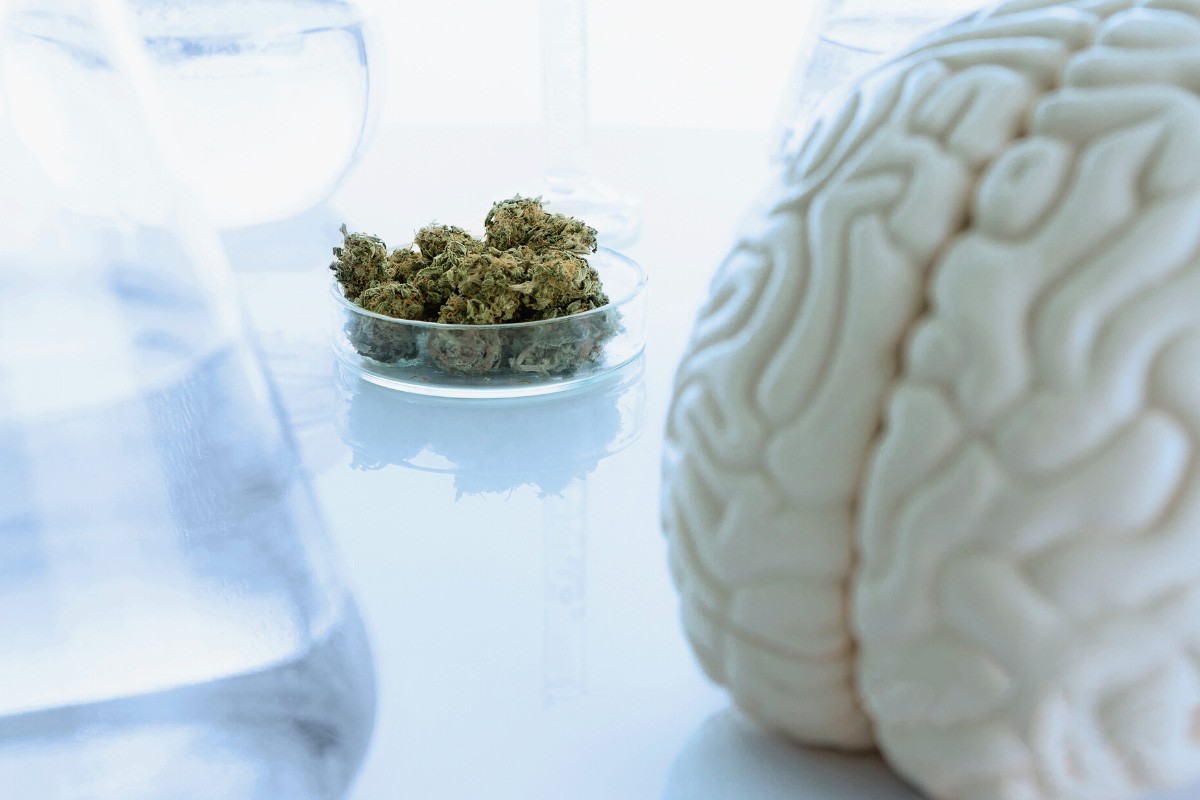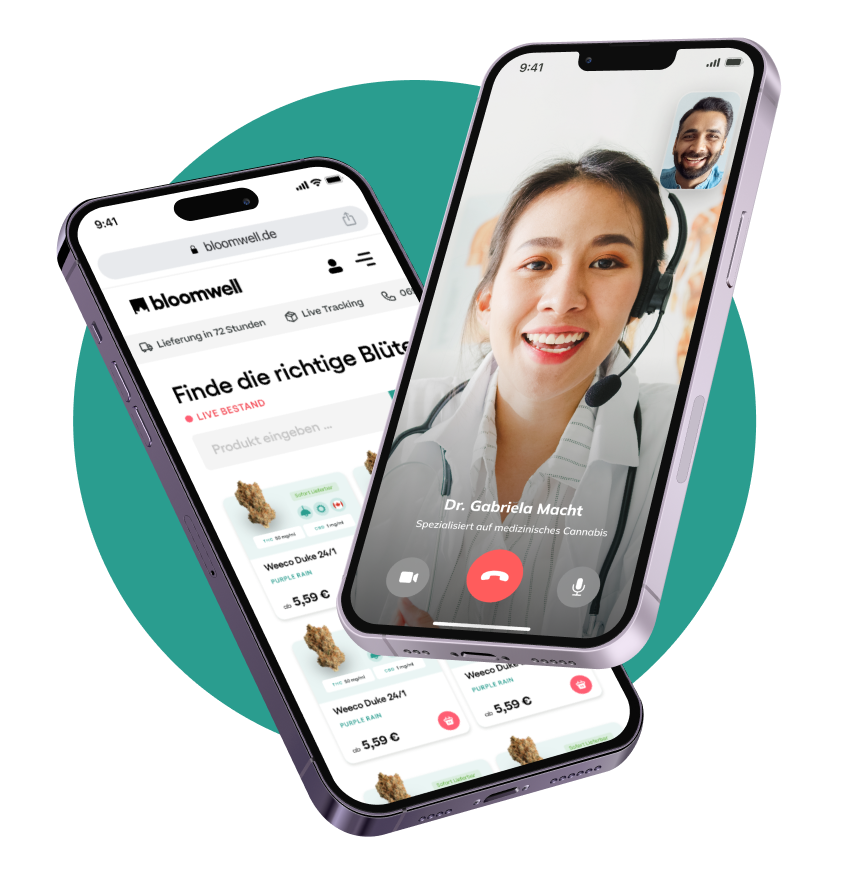People with mental illnesses such as anxiety disorders are showing a growing interest in alternative treatments such as taking medical cannabis based on the cannabinoids THC and CBD. Since 2017, medical cannabis may be prescribed by all physicians in Germany (except dentists and veterinarians), provided certain requirements are met. However, cannabis remains subject to prescription under the German narcotics act (“Betäubungsmittelgesetz” (BtMG)) due to the cannabinoid delta-9-THC included on the narcotics list.
Thus, according to the law for medical cannabis, even for the treatment of anxiety disorders and all other diseases, a prescription may only be made,
- if there is a serious condition for which either no recognized medical treatment is available
- or this is not reasonable according to medical assessment (for example, due to massive adverse effects)
- or if established treatment methods (supported by medication) have not produced any (long-lasting) therapeutic success.
In addition, there must be a certain prospect of an improvement of the symptoms through cannabis, which concerns either the symptomatology or the course of the disease. Whether these requirements are met in individual cases is at the discretion of the physician. The legislator does not name any specific clinical pictures, but typical areas of application include chronic pain, muscle spasms or paralysis of the legs in multiple sclerosis, nausea and vomiting as a result of chemotherapy. However, the above criteria can theoretically apply to other patient groups such as patients with anxiety disorder.
Medical cannabis for anxiety or anxiety disorders treatment
In recent years, interest in alternative treatments for mental illnesses such as anxiety disorders has increased significantly. Especially cannabis became the focus of media attention [1]; the increasing interest in therapy with medical cannabis, especially therapies based on cannabidiol (CBD), could be a sign for the willingness of patients to treat their conditions like anxiety disorders with medical cannabis. This could also be explained by the fact that some patients prefer medical cannabis as a herbal alternative to conventional medications and substitute pharmaceutical opioids, benzodiazepines and antidepressants, but also alcohol, cigarettes and illicit drugs with cannabis [2], so that interactions or adverse effects with cannabis therapy, e.g. in anxiety disorders, can possibly be reduced.
In relevant online forums, there are numerous posts by individuals explaining their various illnesses, symptoms, or health complaints, and then reporting their experiences using cannabis to alleviate specific symptoms, including cannabis for anxiety treatment and mental health. Many of these reports are exceptionally positive, but still represent subjective experiences that may be influenced by external factors in a variety of ways.
Scientific studies on the use of cannabis for anxiety disorders
The scientific basis for a positive effect of cannabis on anxiety disorders is not quite as clear. A review published in 2019 found 31 studies on cannabis and anxiety, of which only 17 met the minimum scientific criteria [3]. However, the review of these studies found that medical cannabis or cannabinoids (primarily THC with or without CBD) improved anxiety symptoms in individuals suffering from other conditions such as chronic pain or multiple sclerosis at the time studied. Thus, the therapeutic use of cannabis could help in the treatment of concurrent anxiety symptoms and might help in improvement of mental health in chronically ill patients.
Especially in animal models, the use of CBD has been shown to reduce behavioral parameters as well as physiological markers of stress and anxiety [4]. However, the efficacy of CBD has also been investigated in human studies. Brazilian researchers, for example, conducted a study with individuals suffering from generalized social anxiety disorder using cannabis (cannabidiol) and healthy individuals controlling the process. They put them in a situation that triggers anxiety, stress and discomfort in most people: The subjects were asked to give a speech spontaneously, which was to be videotaped and later analyzed by an expert. Part of the subjects with anxiety disorder received CBD beforehand, another part placebo. It was found that taking CBD significantly reduced speech anxiety and was associated with less cognitive impairment and less discomfort than taking placebo. These effects were seen in both the healthy controlling subjects and the patient group [5]; however, dosage of CBD also appears to play a major role in the effects of cannabidiol in this regard. Indeed, in another study, the anxiety-reducing effect of CBD was only seen at medium doses (300 mg) and not at low doses (150 mg) or high doses (600 mg) [6].
Further studies suggest that this beneficial effect of CBD may also help with other forms of anxiety such as social anxiety or post-traumatic stress disorder (PTSD) and also anxiety-induced insomnia. In a study published in 2011, patients with social anxiety disorder experienced less anxiety after taking CBD than patients who took placebo instead, which may have to do with CBD’s effects on activity in specific brain areas [7].
Animal studies have shown that CBD can facilitate the extinction of negative memories while blocking their reconsolidation in memory [8]. Similar effects have also been found in humans in recent studies on the effects of cannabinoids, which may be of great interest for the treatment of post-traumatic stress disorder. Thus, therapy with cannabis would be interesting for other mental disorders besides anxiety disorders. In fact, medical cannabis, as well as cannabidiol, is used in the treatment of sleep disorders, depression, and ADHD, to give a few examples of the possible use of cannabis for the psyche.
Connection between the cannabinoid CBD and anxiety
Why cannabis, or specifically cannabidiol (CBD), may work against anxiety is still unclear. One possible explanation has to do with the neurotransmitter serotonin: CBD interacts with the CB1 and CB2 receptors of the endocannabinoid system in the brain. This system is involved in the release of serotonin, among other things. However, CBD can also dock directly to serotonin receptors and thus interact with them immediate. By releasing or inhibiting serotonin, they regulate mood (which is why serotonin is also called the “happy hormone”), as well as appetite, sleep, and pain, among other things.
Serotonin is a neurotransmitter that plays an important role in mental health. For example, many people with depression have low serotonin levels. In addition, serotonin deficiency is also often associated with anxiety. The common drug treatment for depression and anxiety is the use of so-called selective serotonin reuptake inhibitors (SSRIs). They increase serotonin levels in the brain, which dampens anxiety and elevates mood.
However, until the mechanisms of action of CBD on anxiety and panic attacks are fully understood, caution should be exercised in its use and self-medication is not advised. Only take CBD after consulting with your / a doctor, especially if you are already taking medication for your anxiety disorder. The doctor specialized on cannabis could precisely inform you about possible interactions and determine the appropriate dosage.








